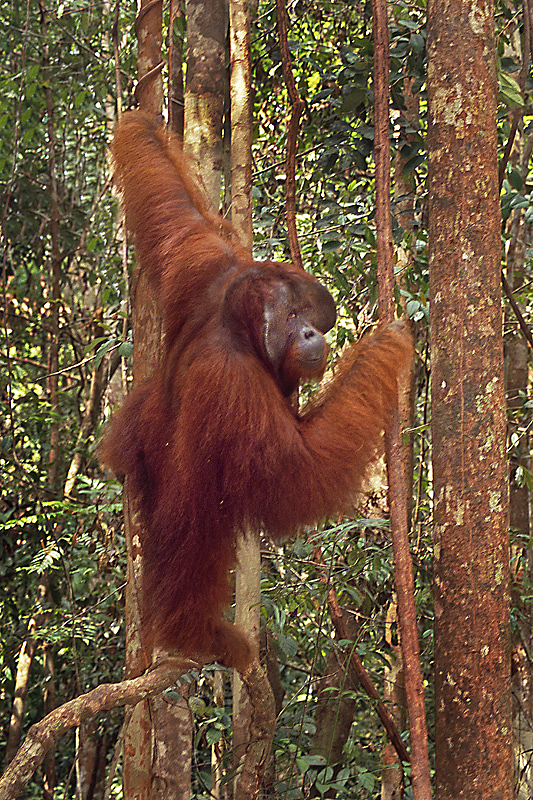
Now they're tearing down the forests
In the jungles of Brazil
Without a second thought
About the species that they kill.
Dan Fogelberg
The next morning we depart early and the crew assures me things will get better. Things quickly get worse. Around every turn of the poisonous river is a new and frightening reality. As my eyes open wider I notice that more than wildlife is missing from this erstwhile paradise. The forest is gone from the jungle! How crazy is that? I am cruising a corridor of pseudojungle, a riverine gauntlet of trees, perhaps 25 meters wide, spangled with the occasional bird or monkey. The trees have been left along the river bank to appease the tourist. I am not appeased.
And even this bit of "consolation" forest is fleeting. Within an hour of departure we enter a gray shroud of smoke and have to pull over to the bank. We cannot see! Progress is impossible for the time being so we wait. Everyone coughs. I decide to hike through the trees, which won't take long, and see what's on the other side.
On the other side of the trees I witness an apocalypse, a scene from Edgar Allan Poe, minus the raven (it died from mercury poisoning). Modern Borneo has been compared to post-war Vietnam and I can see why. The rolling landscape is scorched to the horizon, baked black and dusted with crispy white ash: a black and white hell. Only the napalm is missing. Tendrils of smoke curl upward from the cracked earth and merge with the toxic blanket of "fog." Skeletal tree trunks are the only reminders that yesterday this was the crucible of evolution, the Garden of Eden. In the far distance I hear gears grind and a pneumatic wheeze-another logging truck carrying ancient trees on the first leg of their journey to Japan.
In 1997 an estimated 10,000 square miles of Borneo, an area about the size of Vermont, went up in smoke for the sake of palm oil and "progress." The result was one of history's great ecological disasters. The smoky aftermath spread like a pall over eight countries and 75 million people, enshrouding an area larger than Europe and straining local tempers. Twenty million were treated for pollution related ailments. An airplane crashed in the smog over Sumatra killing hundreds. Ships collided at sea or ran aground. Economies lost billions from cancelled tourism, missed work days, medical bills, and ruined crops. But what the hell? We have palm oil for pizza.
And so it goes in Borneo.